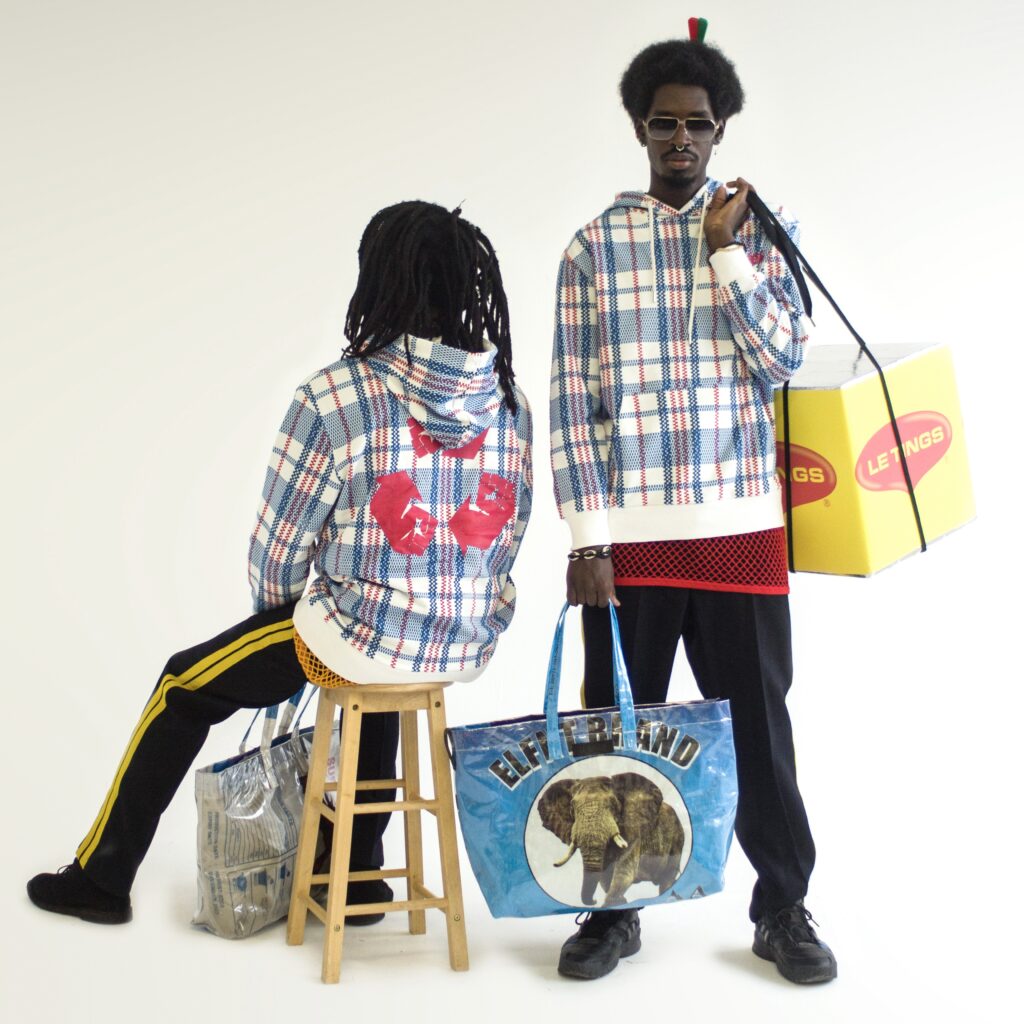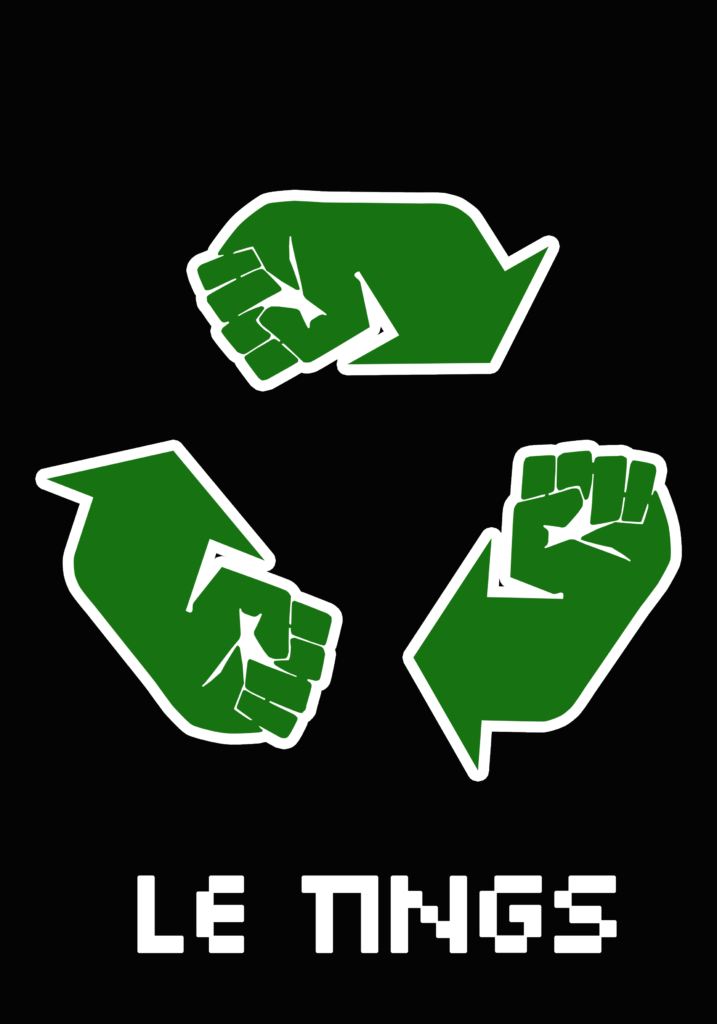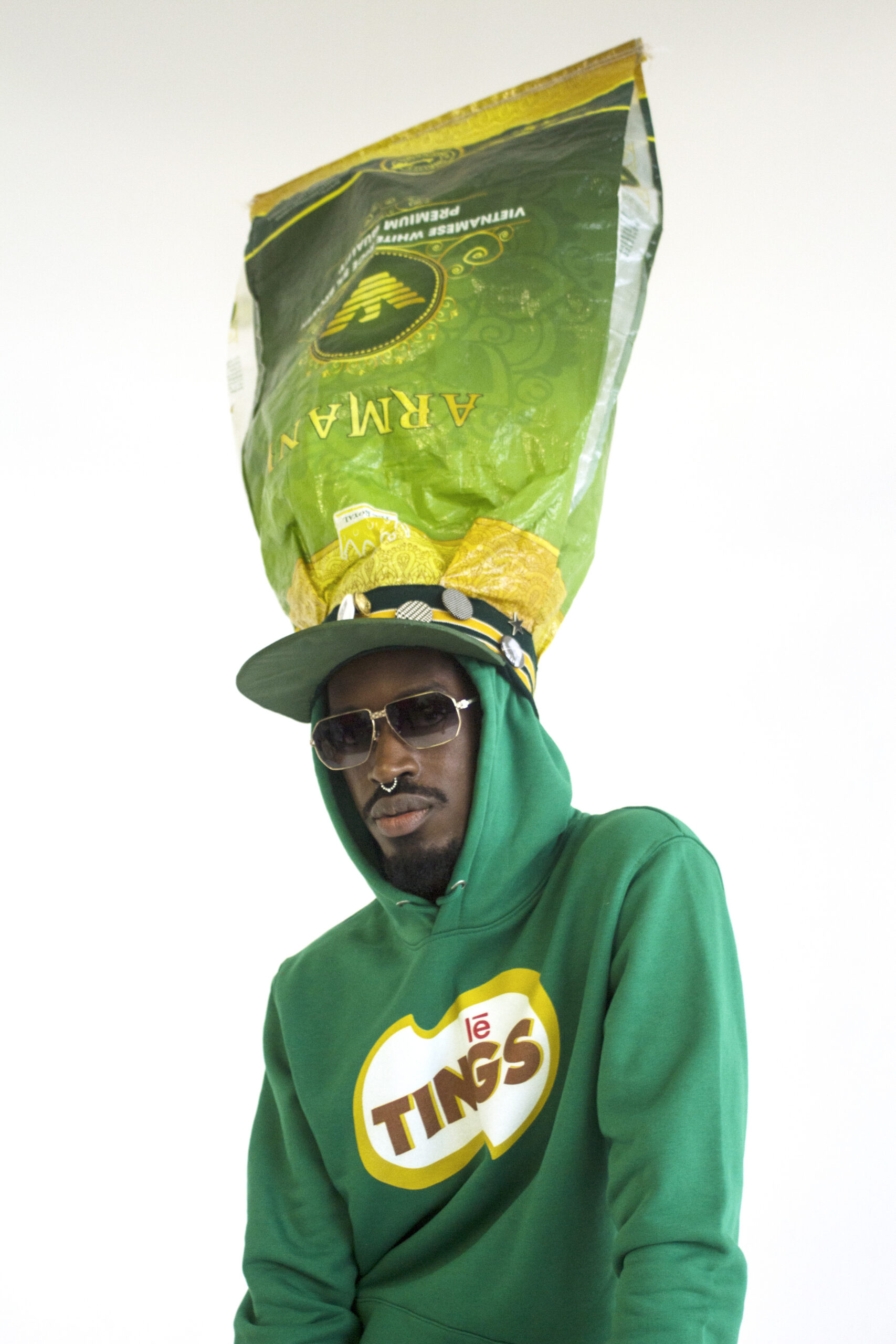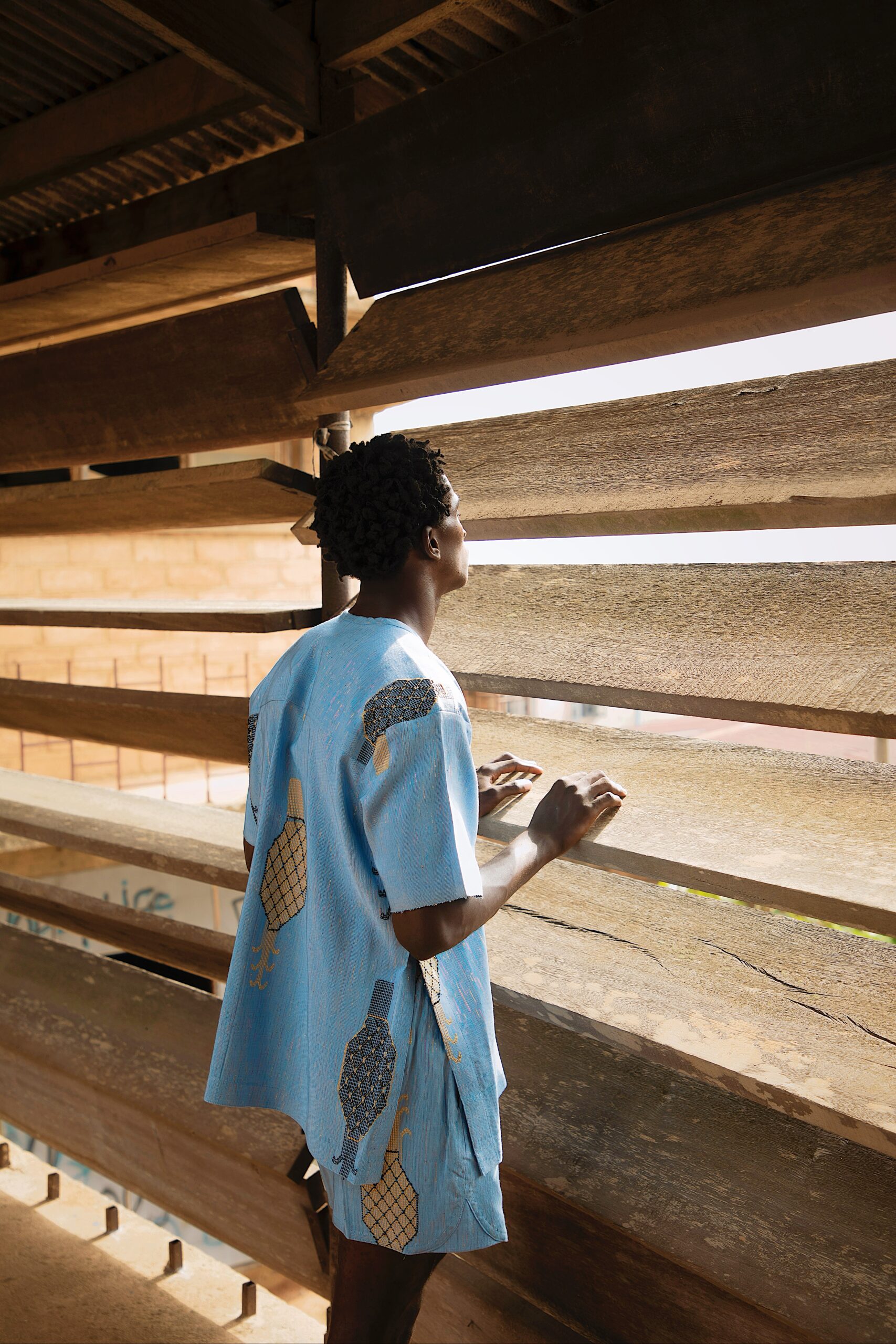Harris Elliott is uniting the tongues and tastes of global Africa with his clever upcycling project
Le Tings weaves oral narratives of the African diaspora into mischievous designs with a purpose that goes way beyond use. Masterminded by Harris Elliott, the brand’s key offering, the ‘Scandal’ tote bag, is crafted from recycled rice sacks that have been sourced from Accra’s Kantamanto market and patchworked together in London. Each design is zero-waste and one-of-a-kind, its imperfect perfections building a dialogue around cultural value. With collaborators including The Revival, Nkwo, Bevan Agyemang, Julianknxx, Lucy Barlow and Labrum, Le Ting is a product of Elliott’s community, which he’s nourished across more than two decades as a trailblazing creative director, visual storyteller and educator. And most recently, as part of the Black Oriented Legacy Development Agency (BOLD), he co-curated ‘The Missing Thread’. The landmark 2023 exhibition at Somerset House showcased the immeasurable influence Black talent has had on British fashion since the 1980s. Here, he discusses all things Le Tings.
What is your take on sustainability in the West African context?
Life in West Africa has always been driven by sustainability. Communities are reared on the basis of not wasting anything – whether that be from your plate, your wardrobe or in your environment. It has been in the DNA across the whole continent for centuries, so people need to be careful not to fully embrace the disposable nature of cultural and digital progression at the cost of their intrinsic practices and life journeys.
“This is Le Tings – the design dialect of the diaspora”





